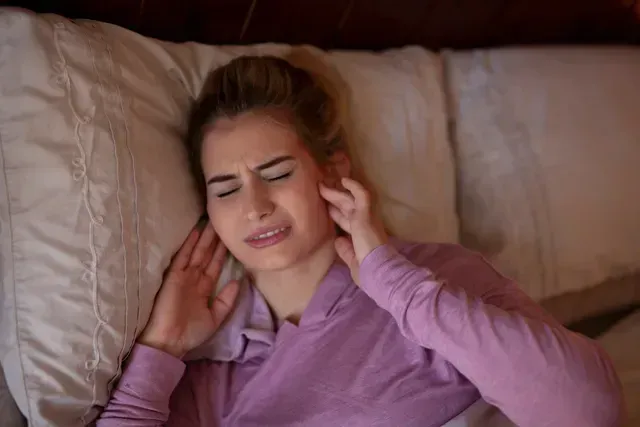Teeth Grinding
Snoring & Sleep Apnea Dentist located in Harrisburg, PA

Teeth Grinding services offered in Harrisburg, PA
Up to one-third of people in the US grind their teeth. At Pennsylvania Dental Sleep Medicine in Harrisburg, Pennsylvania, snoring and sleep apnea dentist, Becky M. Fox, DMD, FAGD, D-ABDSM, works with teens and adults to identify teeth grinding (bruxism), ensuring optimal oral health. To schedule treatment for teeth grinding, call our office today or use our online link to request an appointment.
Teeth Grinding Q & A
What is teeth grinding?
Teeth grinding (bruxism) occurs when you clench your jaw and bite down, causing your upper and lower teeth to make contact with each other. That causes friction and wears down your tooth enamel, increasing the risk of chips, cracks, and other damage.
Almost everyone grinds their teeth occasionally, but if bruxism becomes a regular habit, it can affect your bite, oral health, and quality of life. Also, teeth grinding (bruxism) can be an early warning sign of a more significant underlying problem of obstructive sleep apnea.
What are the types of teeth grinding?
Pennsylvania Dental Sleep Medicine diagnoses and treats several types of teeth grinding, including:
Awake Bruxism
Awake bruxism causes you to clench your jaw during the day when you’re working or doing other activities. Often, it occurs because of stress or anxiety.
Mindfulness practices, like meditation and deep breathing, can help increase your awareness, reducing the frequency of awake teeth grinding.
Sleep Bruxism
Sleep bruxism happens at night when you’re asleep. It causes more damage than awake bruxism because you’re unconscious when it occurs. Without treatment, sleep bruxism increases your risk of chronic jaw pain, tooth damage, and headaches. It may also be a warning sign of undiagnosed obstructive sleep apnea.
How is teeth grinding diagnosed?
To diagnose teeth grinding, your Pennsylvania Dental Sleep Medicine provider reviews your dental records and asks about your symptoms, including when the jaw pain started and if it’s worse when you’re stressed or anxious. Next, they complete an oral exam and take digital X-rays and assess the condition of your tooth enamel.
If there isn’t visible enamel damage, your provider might recommend an overnight sleep study to evaluate for an underlying more serious condition of OSA. A sleep study monitors various factors while you sleep, including your jaw and muscle movements. The information gathered helps your provider make a definitive diagnosis.
Pennsylvania Dental Sleep Medicine doesn’t provide sleep studies on-site but can make a recommendation to your PCP or a local board-certified sleep physician to seek services.
How is teeth grinding treated?
It is important to have an evaluation and risk assessment to rule, in or rule out, a more significant underlying condition of sleep apnea. A conventional teeth-grinding mouthguard to treat bruxism can make obstructive sleep apnea worse if overlooked or not diagnosed.
At Pennsylvania Dental Sleep Medicine, if you do not have an underlying sleep disorder, a sleep dentist uses Oral Appliance Therapy to treat teeth grinding. Oral appliances are removable plastic mouthpieces that fit snugly over your teeth. They prevent your teeth from grinding against each other and take pressure off your jaw muscles and temporomandibular joints.
If your symptoms continue, even after wearing a mouthguard, your provider might suggest additional measures, like cognitive behavioral therapy, physical therapy, or meditation.
To learn more about treatments for teeth grinding, call Pennsylvania Dental Sleep Medicine or use the contact link to request an appointment.


